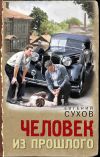Текст книги "Аэропорт / Аirport"

Автор книги: Артур Хейли
Жанр: Иностранные языки, Наука и Образование
Возрастные ограничения: +12
сообщить о неприемлемом содержимом
Текущая страница: 3 (всего у книги 11 страниц) [доступный отрывок для чтения: 3 страниц]
10
The meeting of Meadowood citizenry started later than planned, since most of the six hundred adults who were present had had to battle their way, in cars and on foot, through deep snow. But somehow they came and were unanimously angry.
First they were angry with the thunderous noise of jet propulsion. The second reason was that those assembled had been unable to hear one another so far.
Some difficulty in hearing had been anticipated, and a portable p.a. system had been borrowed from the church. What had not been expected, however, was that tonight jet aircraft would be taking off immediately overhead.
In a momentary silence the chairman, a balding man named Floyd Zanetta, who was a printing firm manager, shouted, “Ladies and gentlemen, for years we have tried reasoning with the airport management and the airline companies. What do the airport and airlines do? I’ll tell you. They pretend to listen. And they make promises, but they are only liars…”
The word “liars” was lost in an unbelievable crescendo of sound. A few glanced upward nervously.
The roar lessened and faded. Already miles away and several thousand feet above, Flight 58 of Pan American was climbing through storm and darkness, reaching for higher, clearer altitudes. Other flights, already in line on an adjoining taxiway, were waiting their turn to follow.
Zanetta continued hastily, “I said they are liars…”
“Mr. Chairman,” a woman’s voice cut in from the body of the hall, “going over it again won’t change anything. What can we do?”
Zanetta said irritably, “If you’ll kindly let me finish…”
He never did. Once again, the same encompassing roar dominated the Sunday school hall.
Then Zanetta continued speaking…
Elliott Freemantle, a lawyer seated beside Zanetta, fidgeted. He re-crossed his legs, observing his two-hundred dollar alligator shoes. Elliott Freemantle had long ago discovered that people preferred their lawyers—unlike their doctors—to look prosperous. Prosperity in a lawyer conveyed an aura of success.
Freemantle had read about the community’s problem and promptly arranged, through contacts, to have his name suggested to several homeowners as the one lawyer who could most likely help them. As a result, a homeowners committee eventually approached him. Meanwhile, he had made a superficial study of the law, and recent court decisions, affecting noise and privacy – a subject entirely new to him – but when the committee arrived, he addressed them with the assurance of a lifetime expert. Later, he had made the proposition which resulted in this meeting tonight, and his own attendance.
Zanetta, the chairman, was saying, “…and so it is my privilege and pleasure to present…”
Elliott Freemantle bounded to his feet. “If you are expecting sympathy from me, you can leave right now, because there won’t be any. My business is law and nothing else.”
He had deliberately made his voice harsh. He had also seen the newspaper reporters look up and pay attention. Good! Cooperation with the press ranked high in any project of Elliott Freemantle’s.
“If we decide, between us, that I am to represent you, it will be necessary for me to ask you questions about the effect of airport noise on your homes, your own physical and mental health. But you may as well know that whatever I learn, and however deeply I become involved, I don’t lose sleep about the welfare of my clients when I’m away from my office or the courts. But…” Freemantle paused dramatically. “But, in my office and in the courts, if we work together, I promise you will be glad I am on your side and not against you.”
Elliott Freemantle sensed early that these people were weary of sympathy. His own words, blunt and brutal, were like a cold, refreshing douche. Now, the moment for specifics had arrived—tonight, for this group, a discourse on the law of noise.
The law of noise, he declared, was increasingly under study by the nation’s courts. Old concepts were changing. New court decisions were establishing that excessive noise could be an invasion of privacy. Courts were in a mood to grant financial recompense where intrusion could be proven.
The United States Supreme Court, he went on, had already set a precedent, and he described the precedent in detail. He then added that elsewhere, more and more similar cases were being argued in the courts. Mention of a specific sum—ten thousand dollars—evoked immediate interest, as Elliott Freemantle intended that it should.
The entire presentation sounded authoritative, factual, and the product of years of study. Only Freemantle himself knew that his “facts” were the result of two hours, the previous afternoon, spent studying newsclippings.
The only thing that Freemantle wanted was this Meadowood homeowners group as clients—at a whopping fee.
It was remarkable what you could accomplish with audacity, particularly when people were white hot in pursuing their own interests. An ample supply of printed retainer forms was in his bag.
“There is little time. Legal action should be begun at once, before the airport, by perpetuation of noise over a period of years, could claim custom and usage.”
Near the front of the audience, a youngish man in hopsack slacks sprang to his feet. “By God!—tell us how we start.”
“You start—if you want to—by retaining me as your legal counsel.”
It had worked, as Elliott Freemantle had known it would.
He would give them value for their money—a good show, with fireworks, in court and elsewhere. Now that his own involvement was assured, he wanted to cement the relationship by staging the first act of a drama.
The actors in the drama would be the residents of Meadowood, here assembled.
The scene would be the airport.
The time: tonight.
11
At approximately the same time D. O. Guerrero was surrendering to failure.
D. O. Guerrero was a gaunt man, slightly stoop-shouldered, with a protruding, narrow jaw, deep-set eyes, pale thin lips, and a slight sandy mustache. His age was fifty; he looked several years older.
He had been married for eighteen years. By some standards, the marriage was good. But in the past year, a mental gulf had opened between the Guerreros which Inez, though she tried, was unable to bridge. It was one result of a series of business disasters which reduced them to near poverty, and eventually forced a succession of moves, including the one to this drafty, cockroach-infested, two-room apartment.
A few weeks ago, in a rage, he had struck Inez. She feared more violence and, soon after, sent their two teen-age children to stay with her married sister in Cleveland. Inez herself stayed on, taking a job as a coffee-house waitress, and the work at least provided money for food.
Inez was now at her job. D. O. Guerrero was in the apartment alone.
He held a confirmed reservation, plus a validated ticket—for tonight—on Trans America Flight Two to Rome. Inez had no knowledge of the ticket to Rome.
The Trans America ticket was for a round trip excursion which normally cost four hundred and seventy-four dollars. However, by lying, D. O. Guerrero had obtained credit. He had paid forty-seven dollars down, acquired by pawning his wife’s last possession of any value—her mother’s ring.
He had avoided a credit investigation by typing deliberately misspelling his surname, changing the initial from “G” to “B,” so that a routine consumer credit check of “Buerrero” would produce no information, instead of the harmful data recorded under his correct name.
In any case, when checking in at the airport later tonight, he intended to have the spelling corrected—on the Trans America flight manifest as well as on his ticket.
Another part of D. O. Guerrero’s plan was to destroy Flight Two by blowing it up.
His own life was useless, his death, though, could be of value, he intended to make sure it was.
Before departure of the Trans America flight, he would take out flight insurance for seventy-five thousand dollars, naming his wife and children as beneficiaries. He believed that what he was doing was a deed of love and sacrifice.
D. O. Guerrero had selected Trans America’s non-stop flight to Rome, because he reasoned, his own plan must preclude the recovery of wreckage. A large portion of the journey of Flight Two—The Golden Argosy—was above ocean.
Guerrero calculated that after four hours’ flying Flight Two would be over mid-Atlantic. A finger through the loop, a tug on the string! And the explosion would be instant, devastating, final, for whomever or whatever was nearby. It would send the aircraft, or what remained of it, plummeting toward the sea. The debris of Flight Two would remain forever, hidden and secret, on the Atlantic Ocean floor.
Flight insurance claims—in the absence of any evidence of sabotage—would be settled in full.
It was a few minutes after 8 P.M.
One final thing to do! A note for Inez.
I won’t be home for a few days. I expect to have some good news soon which will surprise you. D.O.
It wasn’t much of a note to mark the end of eighteen years of marriage but it would be a mistake to say too much. Afterward, even without wreckage from Flight Two, investigators would put the passenger list under a microscope.
Part Two
8:30 P.M. – 11 P.M. (CST)
1
Once more, Joe Patroni returned to the warmth of his car and telephoned the airport. The Aéreo-Mexican 707 was still stuck in mud out on the airfield. His help was needed urgently.
At the moment, the scene around the wrecked tractor-trailer transport looked like a staged disaster for a wide screen movie. The arrival of a TV camera crew, a few minutes earlier, had heightened the stage effect.
Before he left to make his telephone call, Joe Patroni had carefully coaxed the tow trucks into locations which would give them the best leverage, together, to move the disabled tractor-trailer. As he left, the truck drivers and helpers were connecting heavy chains which he knew would take several more minutes to secure. But now, incredibly, the chains were removed, except for one which a grinning tow truck operator was handling as a portable TV camera focused on him.
“Who in hell changed the trucks? The way they’re lined now, all they’ll do is pull each other.”
“I know, Mister.” The lieutenant appeared fleetingly embarrassed by Patroni’s words. “But the TV guys wanted a better shot.”
“You just blocked this road an extra twenty minutes. It took ten minutes to locate those trucks where they should be; it’ll take another ten to get them back.”
“Now listen, mister. We’re glad to have help, including yours. But I’m the one who’s making decisions.”
“No!—you listen to me.” Joe Patroni stood glaring. “There’s an emergency at the airport. I already explained it; and why I’m needed there. There’s a phone in my car. I can call my top brass, who’ll call your brass, and before you know it, somebody’ll be on that radio of yours asking why you’re polishing your TV image instead of doing the job you’re here for. So, do I call in, or do we move?”
The lieutenant glared wrathfully back at Joe Patroni. Then he went to the TV crew. “Get all that crap out of here! Right now!”
The TV man visibly jumped. “Okay, okay.” He motioned hastily to the others and the lights on the portable camera went out.
“Let’s have those two trucks back the way they were!” The lieutenant returned to Joe Patroni. “You want an escort to the airport?”
Patroni nodded appreciatively. “Thanks.”
Heavy chains from one tow truck were secured around the axles of the disabled transport tractor. A second tow truck was connected to the toppled trailer. The third tow truck was behind the trailer, ready to push.
The chains and cable between the trailer axles and the second tow truck tightened. The third tow truck pushed against the trailer roof. The TV camera was functioning again, its lights adding brightness to the scene.
Slowly, ponderously, the overturned vehicle shifted a few inches, a few feet, then slid clear across to the far side of the road. Within seconds, instead of blocking four traffic lanes, it obstructed only one. It would be a simple matter now for the three tow trucks to nudge the tractor-trailer clear of the highway onto the shoulder beyond.
A patrol car, parked on a shoulder, was edging onto the highway. The lieutenant pointed to it. “Keep close up behind that car. I’ve told them you’ll be following, and they’ve orders to get you to the airport fast. And mister… Thanks!”
2
Captain Vernon Demerest, as always since the beginning of their affair, found the first sight of Gwen enchanting. She was in a trim uniform skirt and blouse which made her seem even younger than she was. Her rich black hair was lustrous and deep dark eyes regarded him with smiling, frank approval. “You can kiss me hard,” she said. “I haven’t put on makeup yet.”
He smiled, her clear melodious English voice delighting him again. At times, Vernon Dermerest encouraged Gwen to talk, merely for the joy of hearing her speak.
Not talking now, they held each other tightly, her lips responding eagerly to his.
After a minute or so, Gwen pushed herself away. “No!” she insisted firmly.
“Why not? We’ve time enough.”
“Because I told you—I want to talk, and we don’t have time for both.” Gwen rearranged her blouse. “What I was going to tell you, Vernon, is that I’m pregnant.”
It was said so casually that at first the words failed to register. “Are you sure?”
Gwen laughed and sipped her tea.
“That line you just said, darling,” she assured him, “is an old cliché.”
“Well, goddammit, Gwen!” His voice rose. “Are you?”
“Of course. What happened,” Gwen said calmly, “is perfectly simple. On that layover we had in San Francisco… I’m afraid I was careless. I’d quit taking pills because they were making me overweight; then I thought I didn’t need any other precautions that day, but it turned out I was wrong.”
Then he said awkwardly, “I suppose I shouldn’t ask this…”
She interrupted. “Yes, you should. You’re entitled to ask. I’d ask too, if things were the other way around. The baby’s yours. There hasn’t been anybody else; there couldn’t be. You see… I happen to love you.” For the first time her eyes were lowered. She went on, “I think I did… love you, I mean—even before that time we had in San Francisco. I’m glad of that, because you ought to love someone if you’re to have his baby, don’t you think so?”
“We have to do some serious talking, and make some plans.” He covered her hands with his own.
“You don’t have to do anything. And you can stop wondering whether I’m going to be difficult, or whether I’ll make things awkward for you. I won’t. I had to tell you tonight because the baby’s yours. I’m also telling you, I intend to work things out myself.”
“Don’t be ridiculous; of course I’ll help.” The essential thing was speed. He wondered if Gwen had any religious scruples about abortions. “Are you Catholic?”
“No.”
Well, he reflected, that helped. Maybe, then, a quick flight to Sweden would be the thing; a few days there was all Gwen would need. Trans America would cooperate, as airlines always did, providing they were not officially involved—the word “abortion” could be hinted at, but must never be mentioned.
He asked, “You’re still coming to Naples with me?”
“Of course; I’ve been looking forward to it. Besides, I bought a new negligee. You’ll see it tomorrow night.”
He stood up from the table and grinned. “You’re a shameless hussy.”
“A shameless pregnant hussy who shamelessly loves you. Do you love me?”
She came to him, and he kissed her mouth, face, and an ear, then whispered, “Yes, I love you.” At the moment, it was true.
“Vernon, dear. I mean what I said. You don’t have to help me. But if you really want to, that’s different.”
“I want to.” He decided he would sound her out about an abortion, on their way to the airport.
Gwen glanced at her watch; it was 8:20. “It’s time, Captain, sir. We’d better go.”
“You really don’t have to worry,” Vernon Demerest said to Gwen as they drove. “Airlines are used to having their unmarried stewardesses get pregnant.”
He said carefully, “I guess we were both careless.”
“All right. And… I suppose we could call him that.”
“Call who what?”
“Vernon Demerest, Junior, the way Americans do.”
“I wouldn’t want my son…” then stopped. “What I started to say, Gwen, was that airlines are used to this kind of thing. You know about the Three-Point Pregnancy Program?”
No airline liked losing stewardesses for any reason. Their training was expensive; a qualified stewardess represented a big investment. Another thing: the right kind of girls, with good looks, style, and personality, were hard to find.
The way the programs worked was practical and simple. If a stewardess became pregnant, and did not plan to be married, obviously she could return to her job when her pregnancy was over, and usually her airline would be delighted to have her back. As to her personal welfare, airline personnel departments had special sections which, among other things, would help make medical or nursing home arrangements, either where a girl lived or at some distant point, whichever she preferred. A loan of money could sometimes be arranged.
In return for all this, the airline asked three assurances from the stewardess– hence the Three-Point Pregnancy Program.
First, the girl must keep the airline personnel department informed of her whereabouts at all times during her pregnancy.
Second, she must agree that her baby be surrendered for adoption immediately after birth. The girl would never know the baby’s adoptive parents.
Third, the stewardess must inform the airline of the name of the child’s father. When she had done so, a representative from Personnel sought out the father with the objective of obtaining financial support for the girl. Airlines preferred such arrangements to be amiable and discreet.
“The whole point about the program,” Demerest said, “is that you’re not alone, and there’s all kinds of help.”
He had been careful of one thing—to avoid any reference, so far, to abortion. That was a separate subject because no airline would, or could, become directly involved in abortion arrangements. Advice on the subject was frequently given unofficially to those who sought it.
Gwen regarded her companion curiously. “Tell me one thing. How is it you know so much about all this? This has happened to you before, hasn’t it?”
He nodded reluctantly.
“How many have there been altogether?”
He sighed. “One; only one.”
“The other girl who got pregnant. Did she use the three-point program?”
“Yes.”
“Did you help her?”
“Of course I helped her.”
“Did your wife ever know?”
He hesitated before answering. “No.”
“What happened to the baby?”
“It was adopted.”
“What was it?”
“A girl, I think.”
“You think.”
“I know. It was a girl.”
Gwen’s questioning made him vaguely uncomfortable.
Demerest turned onto the service road which would bring them to the Trans America main hangar area.
Gwen stirred beside him, “Thank you for being honest with me.”
3
The key was to room 224 of the O’Hagan Inn.
It was strange that his room number tonight had in it a “24.”
The 24 had been a date, a year and a half ago.
Thursday, June the twenty-fourth.
It was the reason he would end his life tonight.
On that day in Leesburg, Virginia, not far from historic Harpers Ferry, the sky was clear at dawn.
Among the seventy or more controllers on duty there seemed a sense of lightness, in contrast to the pressure-driven earnestness with which work proceeded on most days of the year. Many non-commercial flights—private, military, even a few airliners—were operating on VFR—”visual flight rules,” or the see-and-be-seen method.
The control sector which Keith regularly worked comprised a segment of the Pittsburgh-Baltimore area. The sector was monitored by a team of three. Keith was radar controller, his job to maintain contact with aircraft and to issue radio instructions. Two assistant controllers handled flight data and airport communications; a supervisor coordinated activities of the other three. Today, in addition, the team had a trainee controller whom Keith had been instructing, at intervals, over the past several weeks.
On the scope’s dark surface, some fifteen pinpoints of bright green light indicated aircraft in the air. Height and distance separations of all aircraft were satisfactory, Keith observed, except that the two Uniteds heading for Baltimore were a little close.
Keith’s supervisor, Perry Yount, touched his shoulder. “Keith, I’m running two positions this shift—this and the next one. We’re a man short. You okay for a while?”
Keith nodded. “I’ve got George to keep an eye on me.”
Keith told the trainee beside him, “George, start getting the picture.”
Wallace had already shown himself to have an alert, quick mind. In one more week he would be a qualified controller.
The morning progressed. At ten to eleven, Keith was aware of a need to visit the toilet. He signaled Perry Yount and told him.
The supervisor nodded. “Is George doing okay?”
“Like a veteran.”
“I’ll hold things down,” Perry said.
Keith noted his time of checking out. Perry scribbled an initial on the next line of the log, accepting responsibility for monitoring Wallace.
When Keith had washed his hands, he went to the window and opened it. The weather was superb.
While Keith Bakersfeld was standing at the window, thinking, a Northwest Orient 727 jet, en route from Minneapolis-St. Paul, was nearing Washington, D.C. Within its cabin a stewardess was bending over an elderly male passenger. His face was ashen. The stewardess believed he had had, or was having, a heart attack. She hurried to the flight deck to inform the captain. Moments later, acting on the captain’s orders, the Northwest first officer asked Washington Air Route Center for special clearance down, with priority handling to Washington National Airport.
Keith wondered sometimes—as he was wondering now—how many more years he could force his occasionally weary mind to go on. He had been a controller for a decade and a half. He was thirty-eight. The Federal Aviation Agency had urged Congress to allow air traffic controllers to retire at age fifty, or after twenty years of service. Congress, Keith remembered, had ignored the warning and refused to act.
The Northwest had already started down, on authority from Washington Center. At lower altitudes, other flights were being hurriedly diverted, or ordered to orbit, safe distances away. At this moment, responsibility for the Northwest flight and other aircraft devolved on the sector team next to Keith’s—the extra sector which the young Negro, Perry Yount, was supervising.
In the present situation, as always, Perry Yount was responding with experienced skill. Working with others in the sector team, he was coordinating emergency procedures—calmly, level voiced, so that from his tone no bystander listening would be aware that an emergency existed. The Northwest flight was steady on course, descending. In a few minutes, the emergency situation would be over.
Some thirty miles northwest of Washington Route Center a private, four-place Beech Bonanza, at seven thousand feet, was leaving Airway V166 and entering Airway V44. It contained Irving Redfern, a consulting engineer-economist, his wife Merry, and their two children—Jeremy, ten years old, and Valerie, nine.
Unknown to George Wallace or Perry Yount or Irving Redfern, an Air National Guard T-33 jet trainer was flying – at the moment idly in circles – a few miles north of Airway V44. Its pilot was an automobile salesman named Hank Neel. This would not have mattered except that Neel had become bored and was also a careless pilot. He was so far south that several minutes ago the National Guard jet had entered George Wallace’s radar control area and now appeared on Wallace’s screen at Leesburg as a green dot, slightly larger than the Redfern family’s Beech Bonanza.
Lieutenant Neel decided he would finish his flying practice with some aerobatics—two loops, a couple of slow rolls—and then return to base. He was now even closer than before to Airway V44. Now, beginning his first loop and slow roll, he put the jet trainer into a steep dive.
Glancing at his watch, Keith realized guiltily that it was almost fifteen minutes since he left the control room. Keith scribbled a signature in the sector log and noted the time, then moved behind George Wallace, getting the picture, letting his eyes adjust to the control room semidarkness.
A bright green dot without identification caught Keith’s eye, “What’s the other traffic near the Beech Bonanza 403?”
Lieutenant Neel had finished his first loop. He leveled the T-33 jet, then put the nose down sharply and began a dive into a second loop.
With a swift, single movement, Keith ripped the radio headset from George and shouldered him aside. “Beech Bonanza NC-403, this is Washington Center. There is unidentified traffic to your left. Make an immediate right turn now!”
The National Guard T-33 was at the bottom of its dive. Immediately above was the tiny Beech Bonanza, containing Irving Redfern and his family, cruising steadily on Airway V44.
Breathlessly… silently… praying hard… they watched the closing, bright green dots. “Washington Center, this is Beech…” Abruptly the transmission stopped.
An airline pilot, receiving the Washington Center message, would have flung his aircraft instantly into a steep right turn. He would have caught the urgency in Keith’s voice. Later there would have been complaints, apologies, denunciations, perhaps a Civil Aeronautics Board inquiry. But– with ordinary luck—there could have been survival. Quick action could have insured it. It would have insured it for the Redfern family, too.
Airline pilots were conditioned by training to swift reflexes. Irving Redfern was not. The National Guard T-33 struck the Redferns’ Beech Bonanza on the left side, slicing off the private aircraft’s port wing. The T-33, mortally damaged itself, continued upward briefly. Scarcely knowing what was happening– he had caught only the briefest glimpse of the other plane—Lieutenant Neel ejected and waited for his parachute to open. Far below, out of control and spinning crazily, the Beechcraft Bonanza, with the Redfern family still inside, was plummeting to earth.
Keith’s hands were trembling as he tried again. “Beech Bonanza NC-403, this is Washington Center. Do you read?”
Beside Keith, George Wallace’s lips moved silently. His face was drained of color.
The dots on the radarscope converged, then faded.
Perry Yount had joined them. “What is it?”
“I think we’ve had a mid-air.”
It was then it happened: the nightmarish sound which those who heard it wished that they had not.
Irving Redfern– perhaps involuntarily, perhaps as a last despairing act—pressed the transmit button of his microphone and held it down. The radio still worked.
The transmission was heard on a console speaker. There was a succession of chilling screams. In the control room, heads turned. Faces nearby paled. George Wallace was sobbing hysterically.
Suddenly, above the screaming clearly, a single voice—terrified. Only later, when the tape recording of the last transmission was played and replayed many times, were the full words put together, the voice identified as that of Valerie Redfern, nine years old.
“…Mummy! Daddy!… Do something! Oh, Gentle Jesus, I’ve been good… Please, I don’t want…”
The Beech Bonanza crashed and burned near the village of Lisbon, Maryland. What remained from the four bodies was unrecognizable.
Lieutenant Neel landed safely by parachute, five miles away.
Later, the trainee, George Wallace, was held technically not to blame, since he was not a qualified controller when the accident occurred. The young Negro supervisor, Perry Yount, was held wholly responsible. The investigating board decided he should have spent less time on the emergency involving the Northwest Orient 727 and more in supervising George Wallace during the absence of Keith Bakersfeld.
Keith was totally exonerated. The question of the length of Keith’s absence from the control room did not arise. Keith attempted to raise it himself, and to accept the major share of blame. But the investigating board regarded it as a chivalrous gesture—and no more.
An independent Air National Guard inquiry produced evidence that Lieutenant Henry Neel had been guilty. However, since his actual position could not be proved conclusively, no charges were preferred. The lieutenant went on selling automobiles, and flying during weekends.
For Keith Bakersfeld, it seemed for a while as if life would go on as usual. He returned to work at Leesburg. Colleagues, aware that Keith’s experience could easily have been their own, were friendly and sympathetic. At home, Natalie was understanding and, as always, loving. She sensed that Keith had undergone a traumatic shock from which he would need time to recover, and she attempted to meet his moods.
Her method might eventually have succeeded, except for one thing—an air traffic controller needed sleep. Keith was getting little sleep and, some nights, none.
On the occasions he did sleep, he had nightmares.
It was then that his conscience would remind him of the wasted minutes in the route center washroom. The Redfern family was dead. Dead because Keith dallied in the sunshine, leaving a semi-experienced trainee too long with responsibilities which were rightly Keith’s.
Keith’s own living, breathing, seemed to him an accusation.
A couple of times, under pressure, Keith “lost the picture” and had to be helped. Afterward he realized he had been under close surveillance. Later, on a suggestion from Washington, and with Keith’s consent, he was transferred from the East Coast to the Midwest—to Lincoln International for control tower duty. A change of locale, it was believed, would help him.
The idea hadn’t worked. He slept only with the aid of barbiturates prescribed by a physician friend of Mel’s.
Soon even Natalie’s resilient nature rebelled against his moods. “I won’t let Brian and Theo grow up around this kind of misery either. Our marriage and the children are more important than your work. If you can’t take that kind of work any more, then give it up. I can’t take much more. If you’re going on like this, it may have to be alone.”
Внимание! Это не конец книги.
Если начало книги вам понравилось, то полную версию можно приобрести у нашего партнёра - распространителя легального контента. Поддержите автора!Правообладателям!
Данное произведение размещено по согласованию с ООО "ЛитРес" (20% исходного текста). Если размещение книги нарушает чьи-либо права, то сообщите об этом.Читателям!
Оплатили, но не знаете что делать дальше?








































